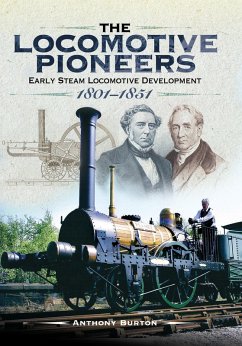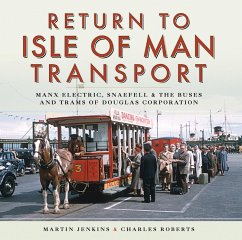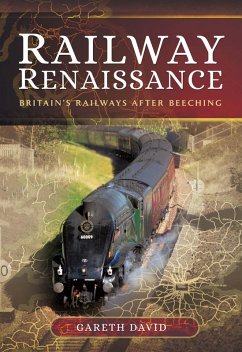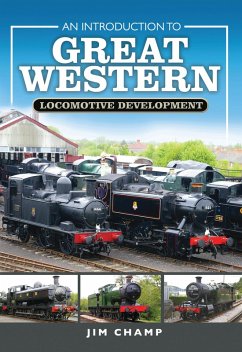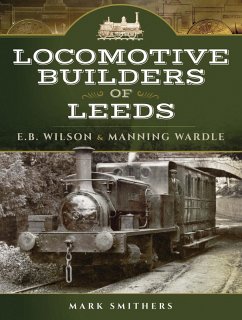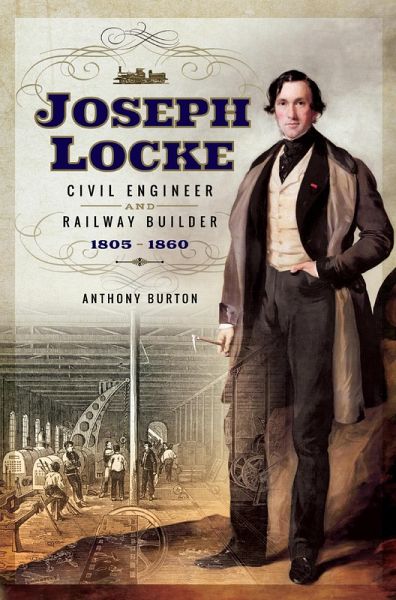
Joseph Locke (eBook, ePUB)
Civil Engineer and Railway Builder, 1805-1860

PAYBACK Punkte
0 °P sammeln!
Most historians recognize the work of three engineers as being the men who developed the railways from slow, lumbering colliery lines into fast, inter-city routes. Two are very well known: Robert Stephenson and Isambard Kingdom Brunel. The third was Joseph Locke, who should be recognized for having made a contribution just as great as that of the other two.The Locke family had been colliery managers and overseers for many generations and Joseph, once he had completed his very rudimentary education at Barnsley Grammar School at the age of thirteen, seemed set to follow in their footsteps. Howev...
Most historians recognize the work of three engineers as being the men who developed the railways from slow, lumbering colliery lines into fast, inter-city routes. Two are very well known: Robert Stephenson and Isambard Kingdom Brunel. The third was Joseph Locke, who should be recognized for having made a contribution just as great as that of the other two.The Locke family had been colliery managers and overseers for many generations and Joseph, once he had completed his very rudimentary education at Barnsley Grammar School at the age of thirteen, seemed set to follow in their footsteps. However, at the age of nineteen he was taken on as an apprentice by an old friend of his father, George Stephenson, and sent to the new locomotive works at Newcastle. His enthusiasm and willingness to learn soon brought promotion, and he became a highly valued assistant engineer on the prestigious Liverpool & Manchester Railway.During his time there he wrote a pamphlet with Robert Stephenson, arguing the case for steam locomotives and had the embarrassing task of having to correct calculations for a tunnel being built under the direct supervision of George Stephenson. After its opening, he moved on to work on the Grand Junction Railway, at the start working alongside Stephenson rather than as his assistant. But before long, they had quarrelled and the directors handed the whole works over to Lockes control. It was the turning point of his life.Locke was to continue as chief engineer on some of the most important lines in Britain, and his reputation grew to the point where he was also in demand for work in mainland Europe, building major routes in France, the Netherlands and Spain. He became a wealthy man, purchasing the manor of Honiton in Devon and sat in Parliament as the Liberal member for that constituency. He received many honors during his lifetime and died while on holiday at Scotland in 1860 at the age of fifty-five.




